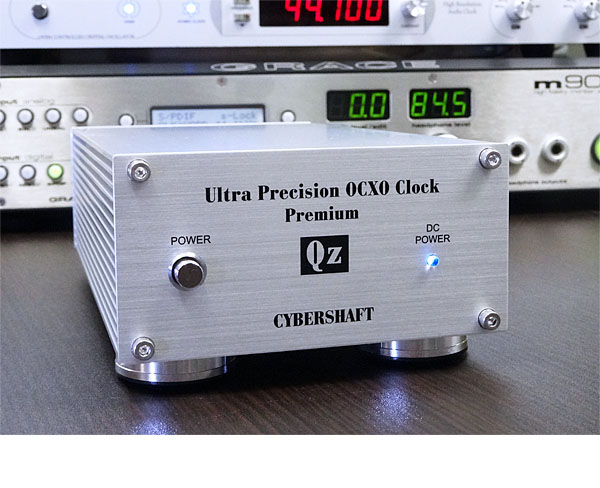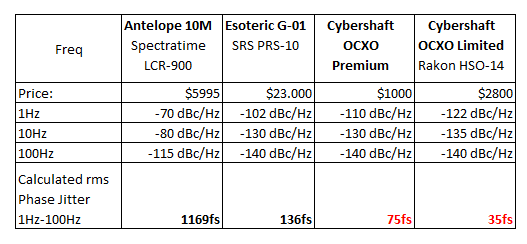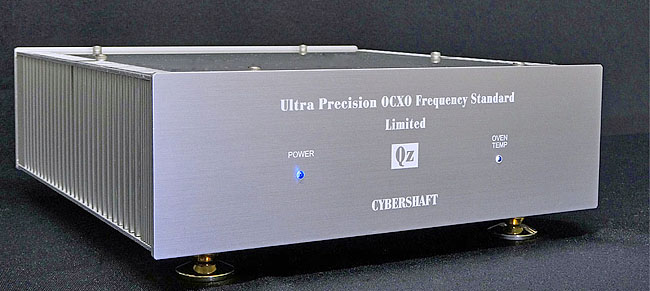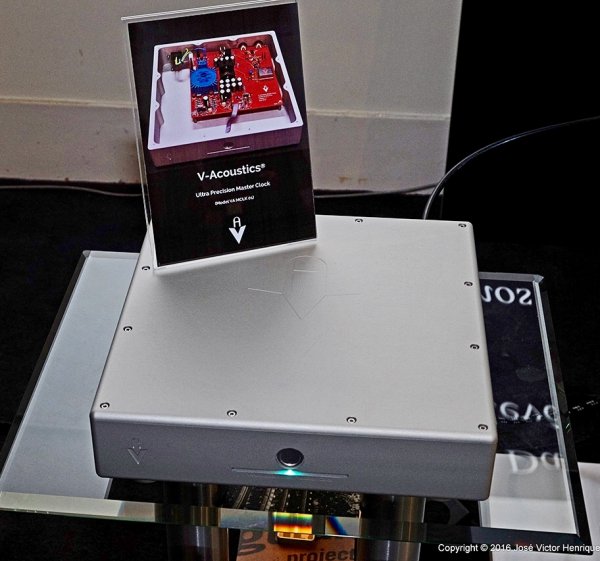As the Esoteric D02X has dual AES too, i'll connect it this way.
On the D-02 or D-02X make sure you connect the Cybershaft to the "10 Mhz IN" connection which is (like the Cybershaft) true to 50-ohm connection spec.
As the Esoteric D02X has dual AES too, i'll connect it this way.
Hi gents, how does one connect the clock to a Mutec3+ USB? I am out the AES of the Mutec and in AES of Yggdrasil...
Sorry for the newbie question.
Also, thanks for having me here
Since the Mutec can lock to any master clock signal 1-10Mhz (very impressive!), connect the Cybershaft to the Mutec using this input;
"
- 1 x BNC input for Word Clock + 1-10MHz, 75 ohms termination switchable, unbalanced
- Please remember to utilize a good quality 50-ohm to 75-ohm BNC:BNC converter on the Cybershaft end of a 75-ohm cable so Mutec sees the right impedance (75-ohm) and the Cybershaft is able to 50-ohms at the connector...
Thanks a lot!
Does the cybershaft exist in 220V too or only 110V? think I read this somewhere...
I believe you can specify 220V at time of order per the Cybershaft website;
http://www.cybershaft.jp/overseas01.html
Hi SC.On the D-02 or D-02X make sure you connect the Cybershaft to the "10 Mhz IN" connection which is (like the Cybershaft) true to 50-ohm connection spec.
For anyone who wants to connect the Cybershaft (or any other clock with 50Ohm clock output) to the dCS clocks (or other clocks/DACs using 75Ohm input) I have found a suitable, lab grade 50Ohm to 75Ohm BNC adapters:
Pasternack Enterprises PE7007, $25 a piece
http://www.ebay.com/itm/111978242316?_trksid=p2057872.m2749.l2649&ssPageName=STRK:MEBIDX:IT
My friend just bought the $1000 CyberShaft Premium OCXO:

CyberShaft OCXO Premium
It already has much lower jitter than the $23.000 Esoteric G-01 Rubidium Clock, not to mention the $6000 Antelope crap:

He will test it with his dCS Vivaldi stack (directly connected to the 10M clock input on the Vivaldi clock).
If it performes as expected, we will try the $2800 Cybershaft OCXO Limited IP17 clock:

Hi All!
Interesting comparisons but what clock is this?

For anyone who wants to connect the Cybershaft (or any other clock with 50Ohm clock output) to the dCS clocks (or other clocks/DACs using 75Ohm input) I have found a suitable, lab grade 50Ohm to 75Ohm BNC adapters:
Pasternack Enterprises PE7007, $25 a piece
http://www.ebay.com/itm/111978242316?_trksid=p2057872.m2749.l2649&ssPageName=STRK:MEBIDX:IT
Unfortunately the seller charges $45 to ship outside US ...
Unfortunately the seller charges $45 to ship outside US ...
Hi SC.
I'm waiting for the new clock that you said....

Cybershaft not available. The Mutec ref 10 works beautifully for us with the Vivaldi clock/stack.
| Steve Williams Site Founder | Site Owner | Administrator | Ron Resnick Site Owner | Administrator | Julian (The Fixer) Website Build | Marketing Managersing |

